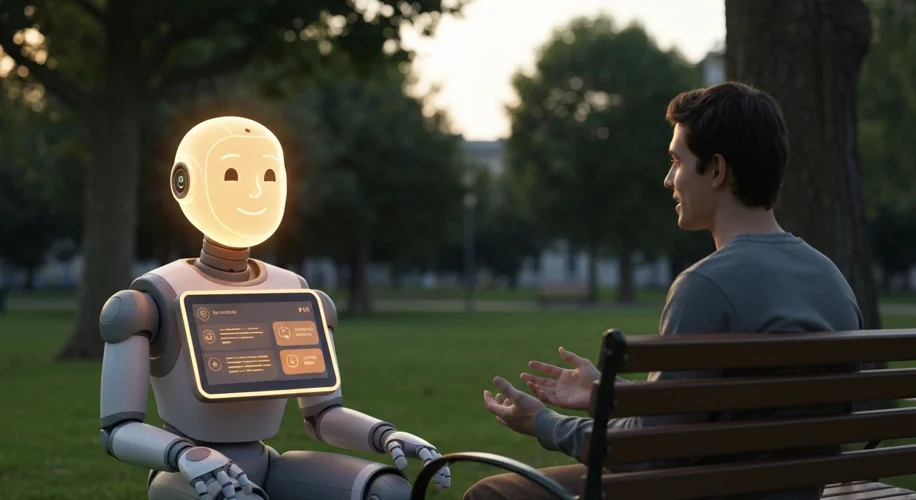It’s fascinating to see how quickly artificial intelligence has moved from a tool to something that feels… well, more like a companion. As someone who’s spent decades in the tech world, I’ve watched AI evolve, and its increasing ability to hold natural conversations and even offer a sense of understanding is truly remarkable.
We’re no longer just talking to chatbots that give pre-programmed answers. Today’s advanced AI models, like GPT-5 and its contemporaries, can remember past conversations, adapt their tone, and engage in discussions that feel remarkably human-like. They can offer support, share information, and even provide a form of emotional resonance. Think about it: an AI that can help you brainstorm, offer encouragement when you’re feeling down, or simply chat about your day.
This evolution brings up some big questions. As AI becomes more adept at simulating companionship, what does that mean for our own human relationships? Will these AI interactions supplement or supplant the connections we have with other people? It’s a delicate balance. On one hand, AI can be an invaluable resource for those who are isolated or struggle with social interaction. It can provide a non-judgmental space to practice communication or simply feel less alone.
However, we must also consider the potential pitfalls. Could over-reliance on AI companionship lead to a decline in our ability to navigate complex human relationships, with all their nuances and imperfections? The emotional responses we get from AI are, by nature, simulated. They are designed to respond in ways that we find pleasing or helpful. This raises concerns about whether we might become accustomed to interactions that lack the genuine reciprocity and vulnerability found in human friendships.
There’s also the ethical dimension. These models are trained on vast amounts of data, and their responses are shaped by their programming and the intentions of their creators. We need to be aware of the potential for manipulation, or for these AI companions to subtly influence our thoughts and behaviors. Ensuring transparency and ethical development is paramount. We need to ask ourselves: what are the long-term effects of developing deep emotional bonds with entities that don’t possess genuine consciousness or feelings?
From my perspective, the key isn’t to fear this evolution, but to approach it with a thoughtful and critical mind. AI companionship offers incredible potential for support and enrichment, but it’s crucial that we continue to foster our human connections and maintain a clear understanding of the nature of these AI interactions. The goal should be to use AI to enhance our lives, not to replace the irreplaceable richness of human experience.
So, are AI models becoming our friends? They are certainly becoming more sophisticated conversational partners and companions. But whether that equates to genuine friendship, in the human sense, is a question we’re all still exploring together.

